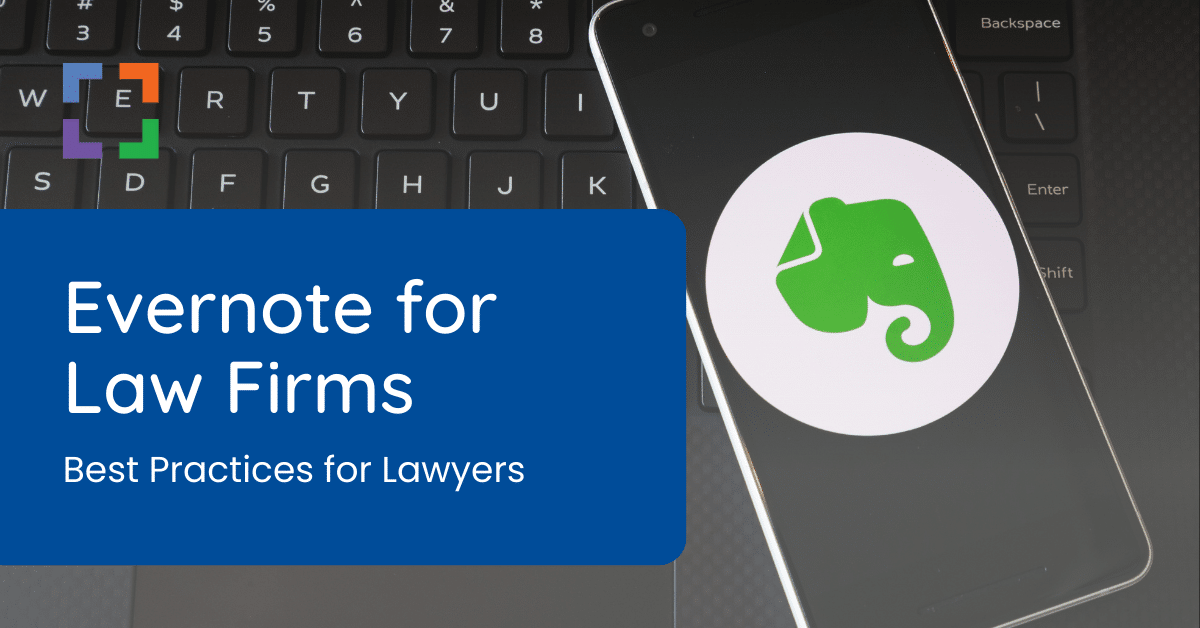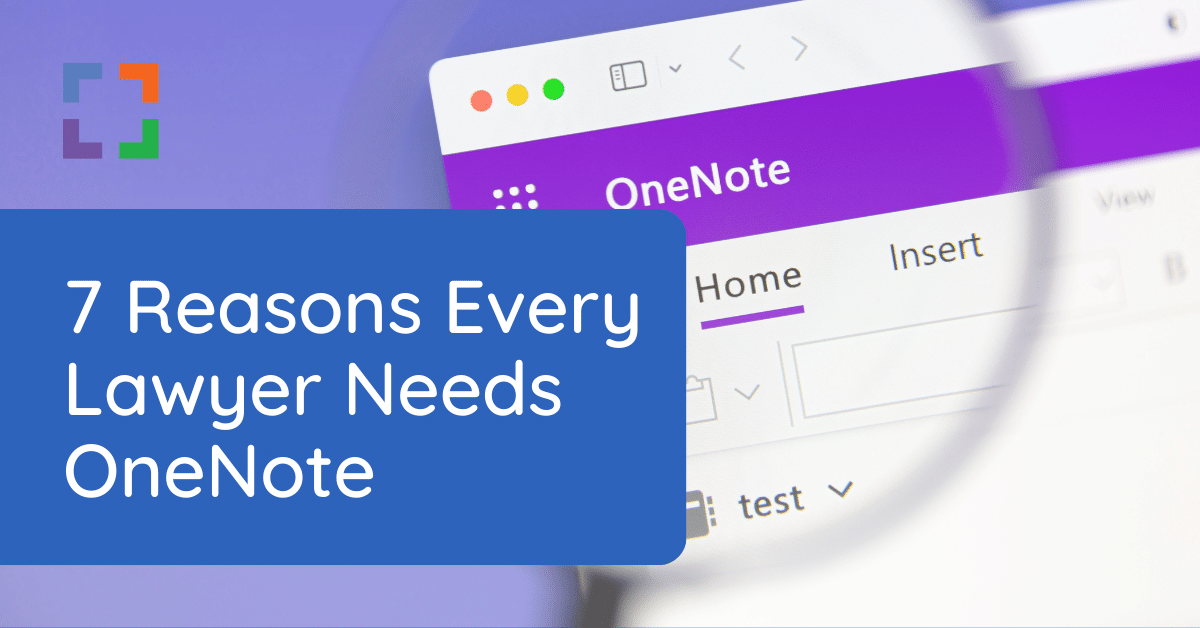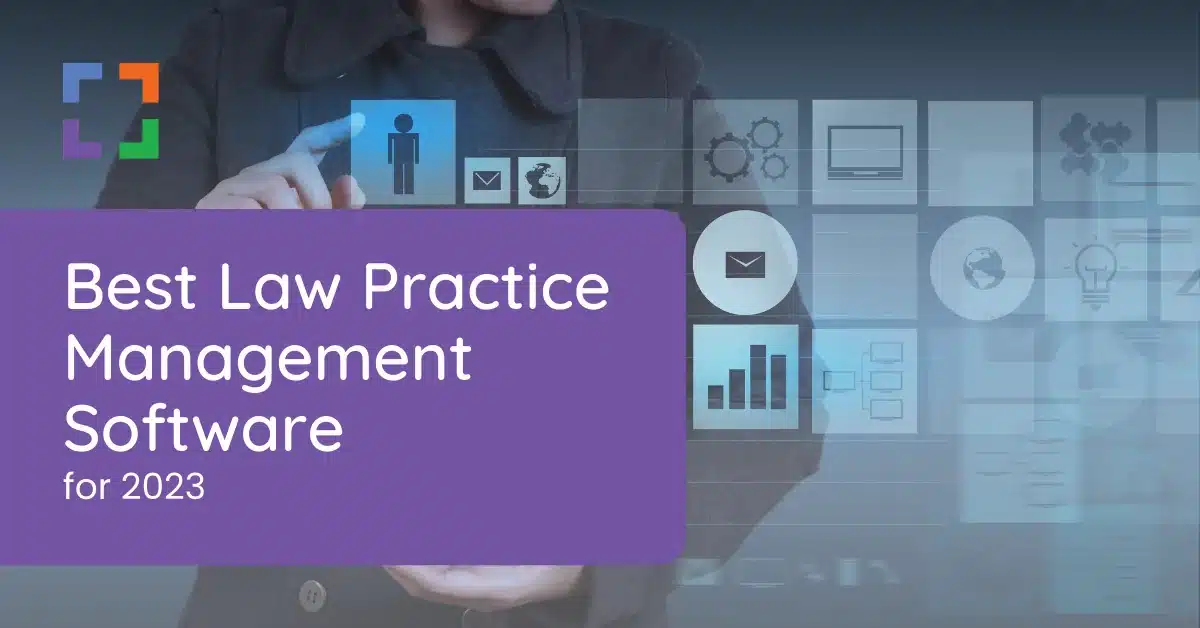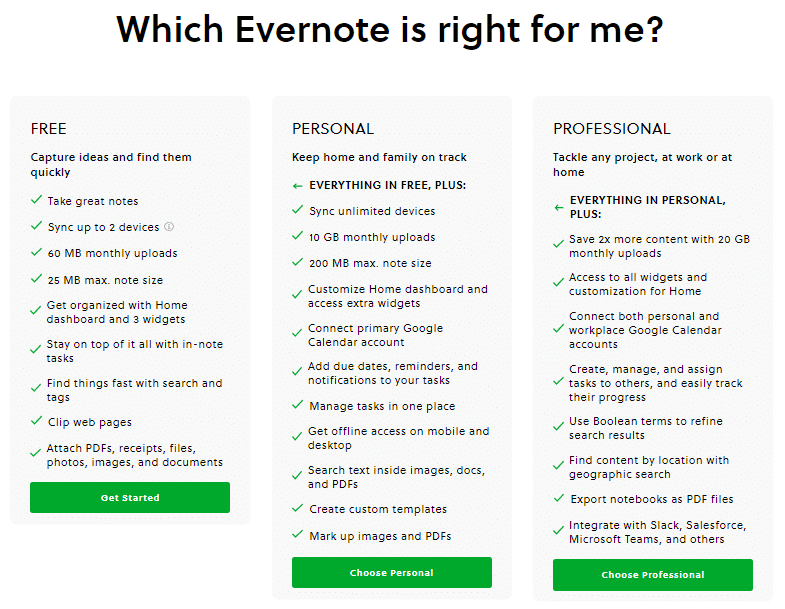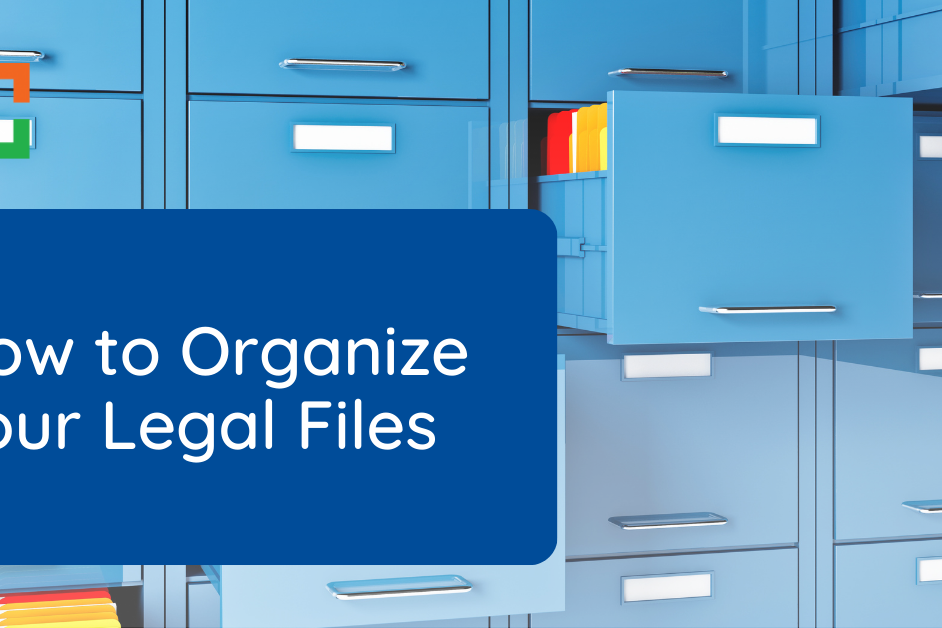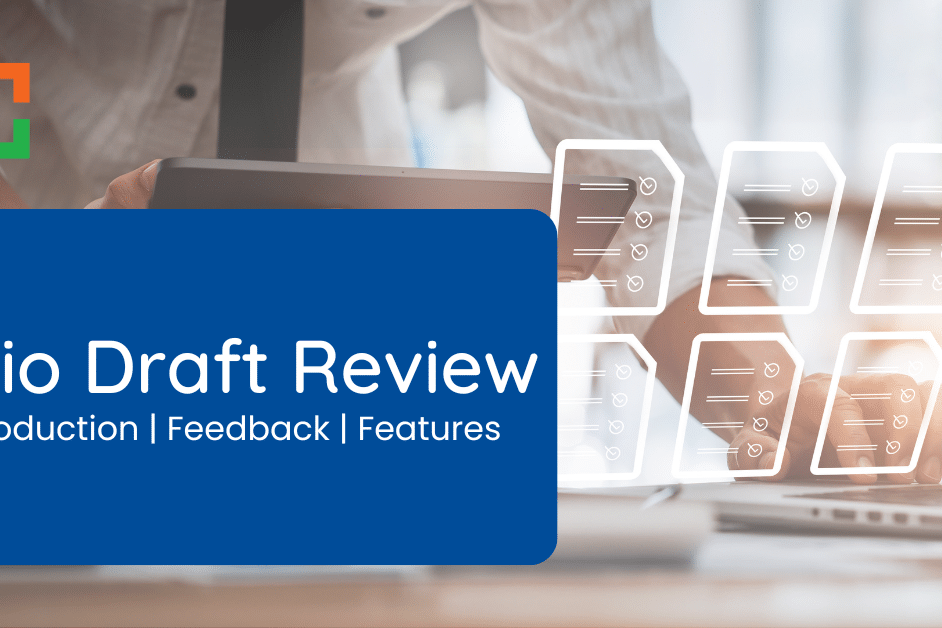Evernote for Law Firms
As we consider the value of Evernote for law firms, Stephan Pachikov, the founder of Evernote, considered how the brain remembers a lot more than we think, forms connections and mental patterns, and uses these for future endeavors.
In other words, what we think and remember directly impacts our future. If that’s the case, lawyers should take steps to remember what’s truly important, right?
That’s where Evernote comes into play.
By using a tool that helps us remember all that’s important, that organizes them in a way that our future selves can access, and that makes headspace for today’s information, you can place a higher bet on success. This is especially true when it comes to legal professionals.
What is Evernote?
Evernote is a note-taking software meant to help you create digital notes, organize them, and manage them as time goes on.
However, the features don’t stop there.
This incredibly useful app also allows you to store and organize pictures you have taken for the purpose of information collection, memory reminders, and more.
Plus, we can’t forget about the feature that allows you to create and manage multiple to-do lists.
- After you’ve added notes, you can access them on multiple devices for easy access.
- You can arrange and organize them however you see fit.
- Lastly, the free version is plentiful, but you can decide to opt-in for their paid plans for even more robust features.
For these reasons, using Evernote for law firms is an effective method for managing information and providing a better experience for how you relate to that information on a daily basis.
Moreover, while anyone can benefit from an app like Evernote, lawyers and law firms can especially thrive with the help of Evernote.
Consider the following:
You are working on a project that holds numerous pieces of evidence.
You have extensively researched and compiled data that’s sure to contribute to a win for your client.
You are getting messages from your client, your client’s parent, your client’s partner, and so on…
Your success is largely dependent upon your ability to stay organized and manage your project in a way that makes as much sense today as it does a month from now.
Before discussing all of the features and aspects of Evernote, let’s briefly discuss the history of Evernote from conception to modern day…
Evernote: A Brief (and Interesting) History
Here’s the truth about Evernote:
If you tried Evernote during certain times of their history, you may have a bad taste for them. They made some mistakes early on, and they made a couple more leading up to 2018.
That’s not to say that they were ever bad, so to speak.
It’s just to say that they took some chances and experimented before finding their true groove in the market. With this in mind, if you didn’t like Evernote in the past, it might be time to try it again! They have come a long way and are now flourishing in the space they have carved out for themselves.
Here’s a quick timeline for your reference:
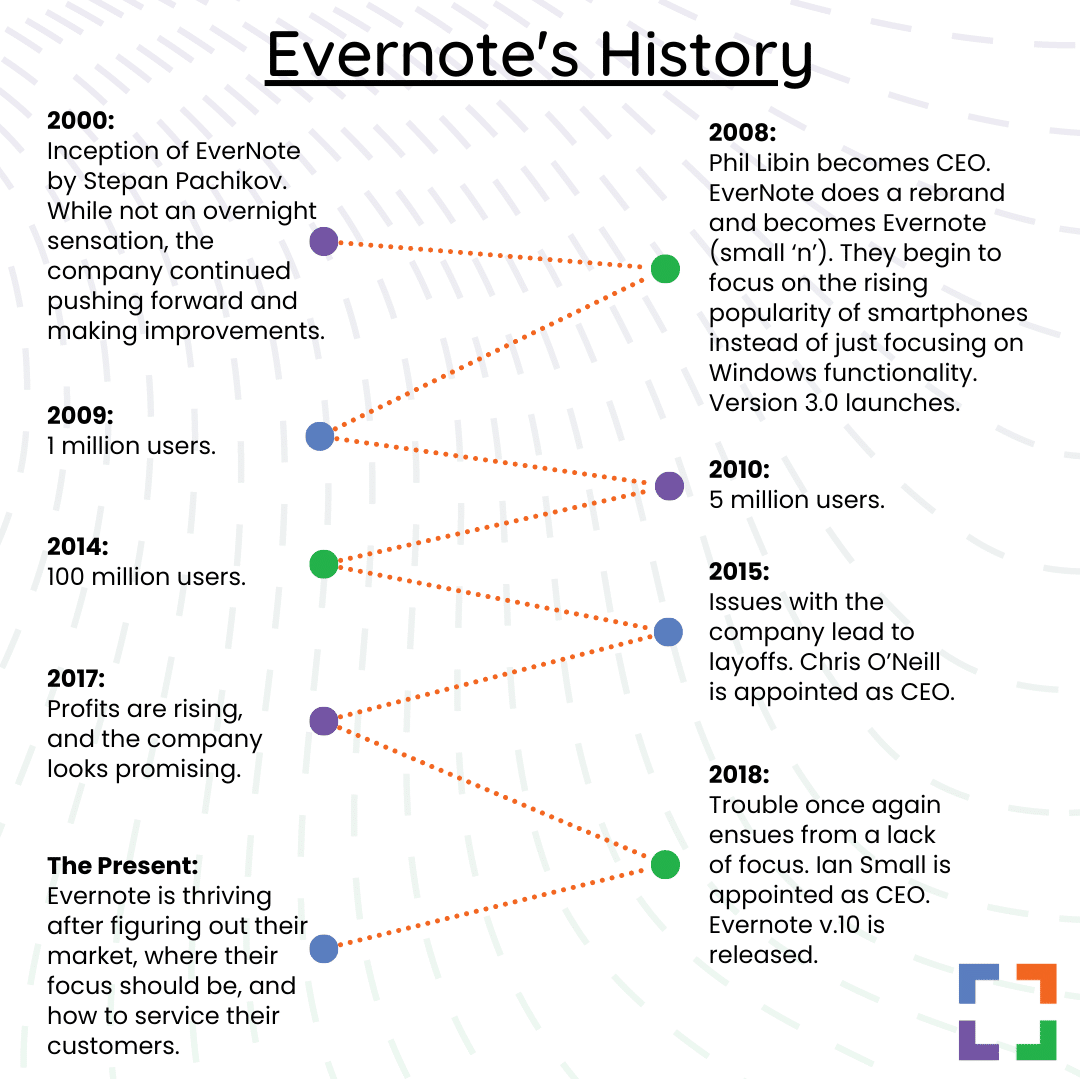
Alright. Now that we know what Evernote is and their intriguing story of finding their purpose in this market, we can learn about the various features that make Evernote a top contender for your note-taking and organizational needs.
Let’s dive in.
Use Evernote for Law Firms to Stay Organized
We have established why good organization is important.
However, good organization is also difficult. At times, it can cause you strife at the worst possible times or even lead to inadvertent malpractice.
Using Evernote is one way to help avoid this issue.
Here’s how it can help you stay organized:
Great Dashboard and Interface
Evernote is easy to navigate from the start.
With clearly labeled and easy-to-find features, it takes little to no effort to find what you’re looking for, to efficiently complete tasks, and you can even pin your favorite notes for quick reference.
Plus, the user interface looks just as good on a desktop as it does on your phone.
So, you won’t have to give up the convenience of using Evernote on the go.
Evernote's Dashboard

The Note-Taking Structure
The note-taking structure of Evernote is good for people who like nesting different elements for intuitive organization that makes things easier to find and work with.
Here is the structure Evernote uses
- Stacks
- Notebooks
- Pages
- Notebooks
Evernote's Nesting Structure

Stacks:
We suggest labeling your stacks based on what project, matter, or case you’re working on. Doing this allows you to have a solid overview.
Notebooks:
Use a notebook for any of these needs:
- Intake Notes
- Meeting Notes
- Client Communications
- Legal Research (try the web clipper for this purpose!)
- Case Information
Pages:
Think of pages as Word Documents.
Whatever you would normally write in word processor, you can write here.
Don’t forget to give your pages a name!
A good tip: Create as many pages as you find useful.
With no limitation on how many pages you can have, and the ability to collapse or expand your notebooks/stacks, you may as well separate your concepts and subject matters.
Further Organization and Visibility
Are you a really big fan of organization? Or maybe you just get frustrated when you’re unable to find something (especially when you really need it at this very moment).
For those who want to take the organization and visibility of their work to an even higher level, Evernote has two great features for you – Tags and Search
What are tags?
They’re a way of grouping similar notebooks or pages together by a label (or tag).
Of course, it makes sense to have all your notes together for any particular case. However, maybe you want to look up any notes that have to do with some similarity. Lucky for you, you can add numerous tags to any note for quick and easy sorting.
Consider these examples of some potential groupings:
- By Case Type
- By Lawyer
- By Date
- By Client
- By Urgency
How does Evernote’s search function work?
Being able to search makes using Evernote for law firms much more accessible and desirable. As time passes, you will start to have more notes than you can count.
This is where the search function comes into play. With numerous ways to search for something in your notes, you don’t have to worry about misplacing another email, physical notebook, or file on your computer.
Let’s talk about some of the ways that you can search using Evernote.
- Quick Search: Foremost, Evernote provides you with a quick search function. In this quick access, you can start typing whatever comes to mind, and you’ll receive immediate suggestions.
- Saved Searches: If you find that you’re often searching for the same thing, you can also save searches. That way, next time you come back, you don’t need to type a single word.
- File Search: Perhaps you’re looking for a file, and you happen to remember a piece of the text that would be in one of those documents, PDFs, images, presentations, or scanned documents. If that’s the case, try searching by text in those files!
- Filtered Search: If you’re still having some trouble finding what you’re looking for, you can narrow down your results by using different filters.
When it comes to filters, you have no shortage of ways to find a specific type of content.
Here are some filters Evernote suggests using:
- Addresses
- Archive Files
- Attachments
- Audio
- Calendar Events
- Checkboxes
- Code Blocks
- Contacts
- Dates
- Document Files
- Encrypted
- Google Drive
- Images
- Integers
- Lists
- Office Files
- PDF Files
- Percentages
- Person Names
- Phone Numbers
- Presentation Files
- Prices
- Spreadsheets
- Tables
- Time
- URLs
- Video
- Webclips
Other Ways to Use Evernote for Law Firms
Up until now, we have covered the great ways that Evernote can function as a note-taking and organizational tool. While these are already reasons to see if Evernote’s for you, the features don’t stop there. In this section, we’ll cover a few other ways that you can use Evernote at its optimal performance.
Using Pictures with Evernote
Taking pictures is a quick way to save information for later. As a professional, you’ll encounter various opportunities where taking pictures will be a quick, effective way to note things for later without missing too much of the present moment. Plus, it will inevitably save you time to take pictures instead of writing down everything you see.
Luckily, Evernote works well with the pictures you will take. Just like text and files, you can organize pictures and search for them later.
Also, you can have multimedia notes! This means that you can have pictures attached to textual notes for a full grasp of what you want to remember and reference later.
Let’s look at some of our favorite ways to utilize pictures when using Evernote for law firms:
- Capture Business Cards
- Capture Handwritten Notes
- Capture Evidence (and encrypt them too!)
- Capture Presentations at Conferences
- Create a Client Profile
Whatever pictures you take, and for whatever reason you decide, you can find a way to utilize them through Evernote in a way that makes the most sense for you.
There’s one more big feature of Evernote that I use all the time, and I know you likely will too…
Using Checklists in Evernote
Since the beginning of time, we have all had to-do lists. We used to keep them in our minds, but as paper was invented, we started writing these lists. In modern day, we can utilize virtual to-do lists. This is a wonderful tool for those using Evernote for law firms.
Through to-do lists, you can stay organized with all the tasks that you need to accomplish.
Whether it’s a task that needs to be completed by tomorrow, a task that can be done at any time, or a task that will be ongoing for months, this function of Evernote lets you decide how you can be most efficient.
Have a big project? Try using the sub-task feature!
Sidebar: Practice Management
Evernote is great for managing notes, content, and tasks. However, a solid Practice Management platform is still the best way to manage your clients, calendar, time and billing.
Organize Tasks in Evernote
Imagine you’re tackling a big project. You’re trying to figure out where to start and you can’t totally work off your memory to decide the most efficient order of functions.
This is where the feature comes in handy.
- Start by creating an overarching note with a name like, “To-Do for the Goldilocks Case.” This way you can find projects and manage multiple to-do lists while checking them off as you go.
- From there, add in tasks that you need to complete for this case. Be sure to add in any details in the description that will allow you to complete the task more easily. Maybe it would help to include a URL, link to a file, or other relevant details.
- Then, organize them by urgency or due date. This way you have the most pressing tasks at the top for easy finding and checking off.
- Bonus: Use the extra features to set a due date and reminder, make it a recurring task, flag the task if it’s a particularly important thing to do, or even assign them to another team member.
Evernote’s Plans and Pricing:
Evernote has 3 versions to offer – each with their own perks.
Free: The Free Version is definitely enough for the many people who use this software.
Though it’s free, Evernote doesn’t shortchange you when it comes to having an effective application. However, if you are looking for more, consider their Personal Version.
Personal ($8.99 per month): As seen below, Evernote does offer a significant upgrade if you choose to spring for one of their paid plans.
While not fully necessary to still reap the benefits of Evernote, choosing a paid plan does give you more of those customizable features that allow you to be as productive as you can be.
Professional ($10.99 per month): Once again, Evernote lists the further improvements to your experience if you decide to upgrade to their top tier offering.
As with the move from the Free to Personal plan, moving to a Professional plan essentially gives you the opportunity to customize your experience and get the most out of this software as you can.
If you often find yourself using Evernote, or even relying on it, you may want to consider getting the Professional plan.
Should You Use Evernote for Law Firms?
The way I often measure my thoughts for a subscription like this one is by considering two big concepts:
- Will it make my life easier or better? Determining what improves my life is a significant determinant for whether or not I choose to have something.
- Will it save me time or money? I’m sure you have heard time is money, and I completely believe in that. If I’m able to save a substantial amount of time, I know that it will translate into better productivity, a better experience with my work, and a better outcome for what I produce.
Evernote and Document Management
Evernote is a great note-taking tool with solid organizational benefits.
With this in mind, this is exactly why Evernote is so complementary with a law firm’s Document Management system. However, as with the care you take when it comes to choosing a note-taking application, choosing the right Document Management System is rather important.
Finding and implementing a good DMS is essential to proper organization and efficient operations within a successful law firm. Who wants to spend valuable time trying to find documents and other assets you need to win a case?
To learn more about Document Management in a modern law firm, take a look at our whitepaper, videos and other resources.
Looking for Document Management Software?
LexWorkplace:
Modern Document Management for Law Firms
LexWorkplace is document & email management software, born in the cloud and built for law firms. Here’s a quick primer on how it works.
Organize by Client & Matter
Organize documents, email and notes by client or matter. Store and manage all data for a case or project in one place.
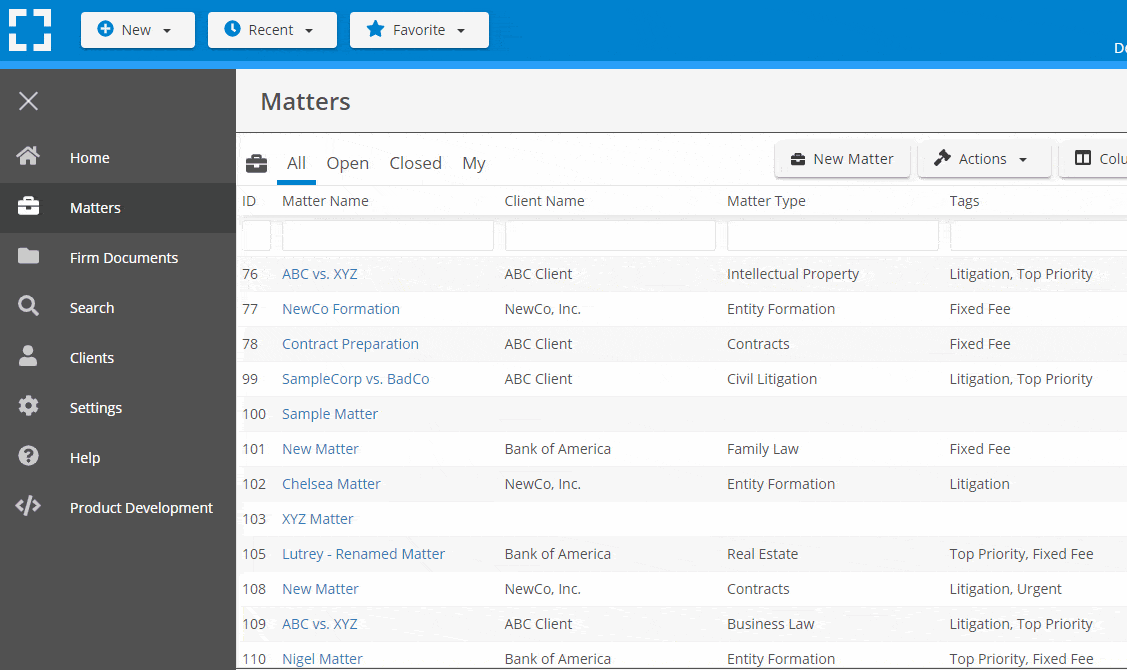
Go Beyond Basic Files & Folders
Supercharge your firm’s productivity with true DMS functions.
- Version Management
- Document Tagging & Profiling
- Document Check-Out / Check-In
- Microsoft Office Integration
- Automatic, Integrated OCR
- Convert Word Docs to PDF
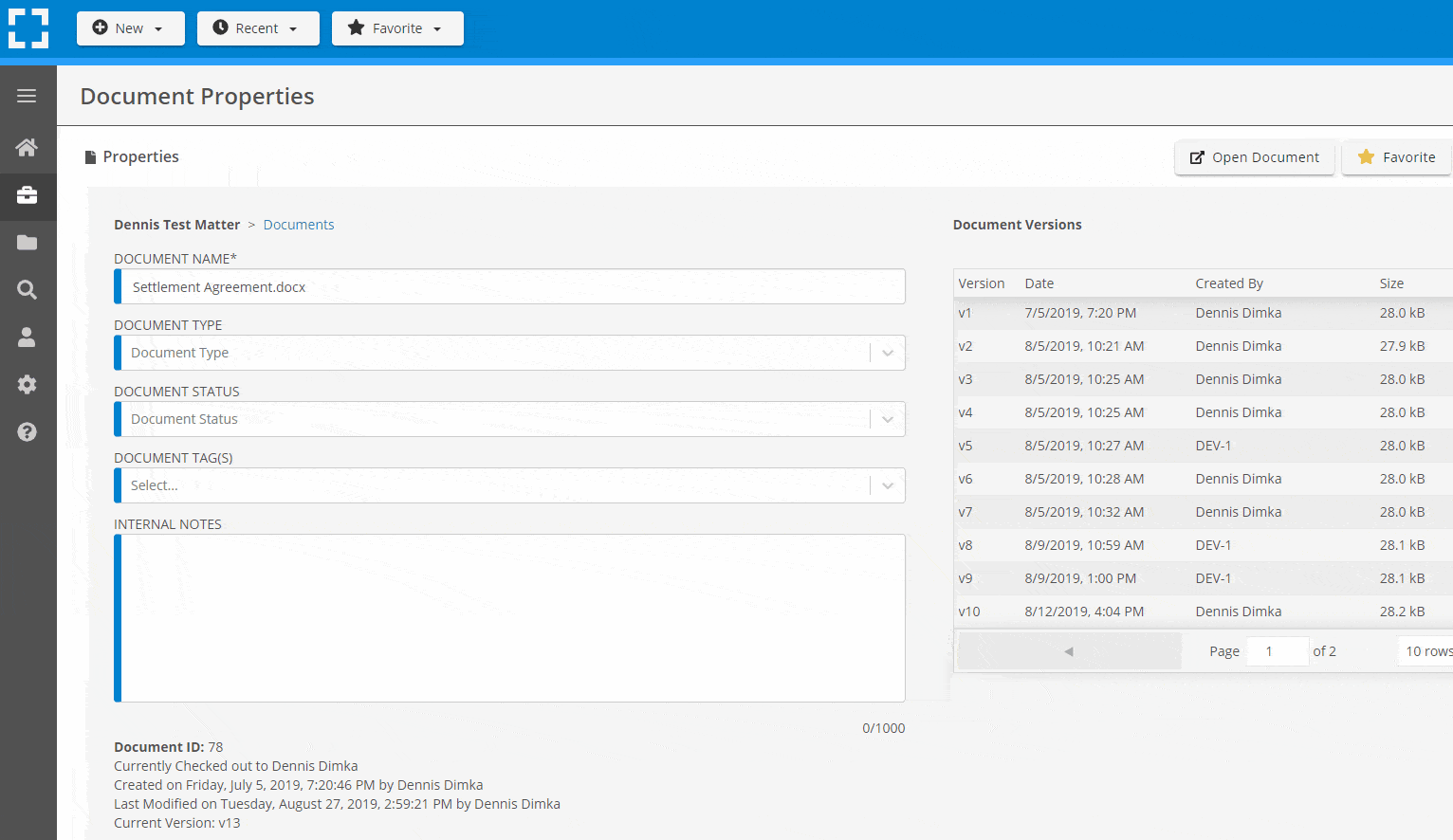
Search Everything
LexWorkplace is like Google for your law firm. Search across millions of pages, documents, folder email and notes in seconds. Refine your search by matter, document type, author and more.
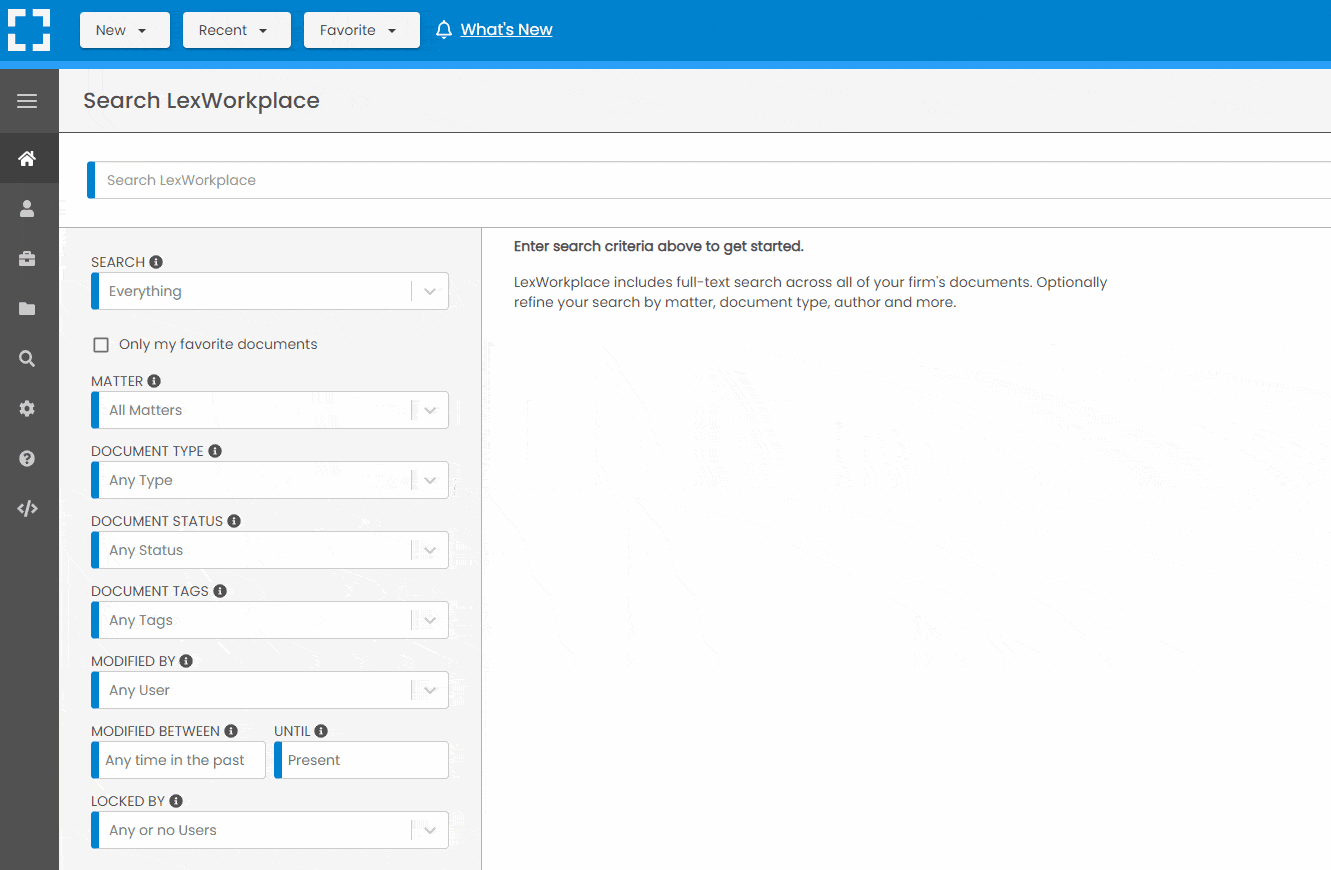
Search by…
- Client or Matter
- Document Type (Contract, Complaint, Order, etc.)
- Document Status (Draft, Final, etc.)
- Document Tags (Filed With Court, Fully Executed, etc.)
Outlook Integration + Comprehensive Email Management
Save emails to a matter without leaving Outlook. Saved emails are accessible to your entire team, organized and searchable.
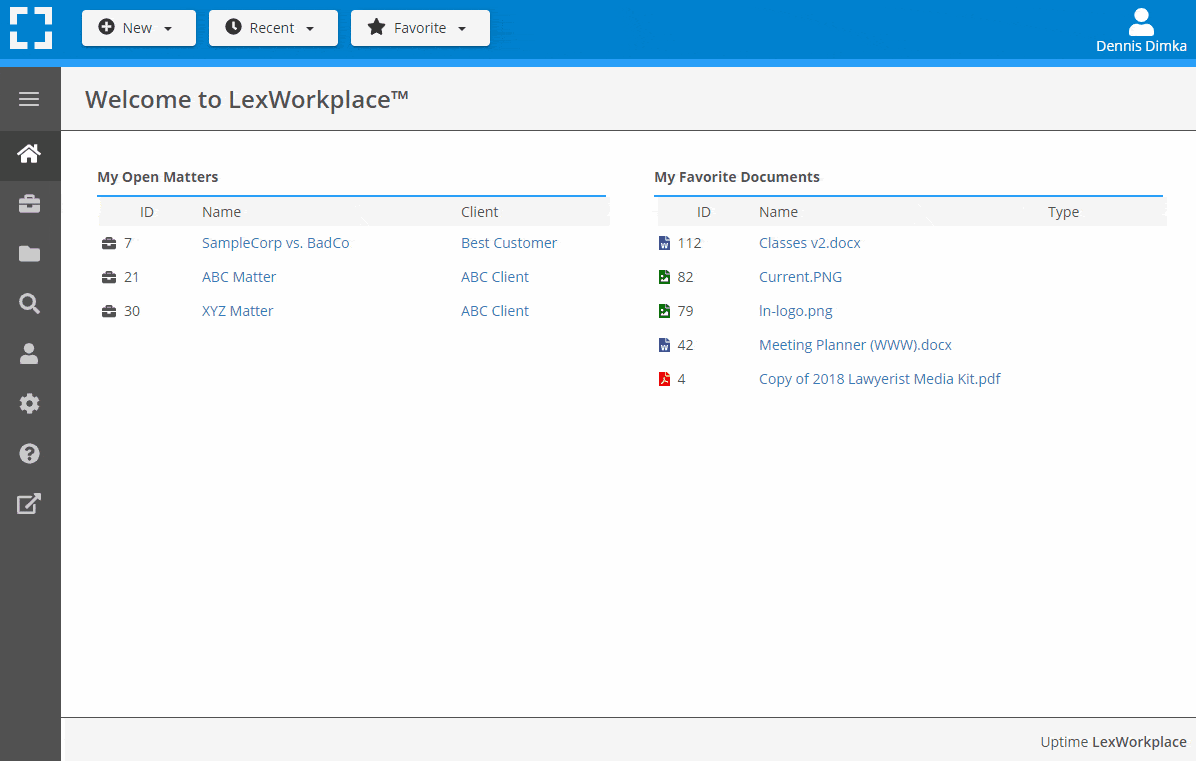
- Outlook Add-In that Works With Windows and Macs
- Save Entire, Original Email to a Matter in a LexWorkplace
- Email De-Duplication
- Organize Emails into Folders, Subfolders
Works with Windows and Macs
All of LexWorkplace is compatible with both Windows and Mac computers.
What Clients Say
Lawyers love LexWorkplace. See how the system streamlined one lawyer’s practice.
Watch the 5-Minute Demo
See LexWorkplace in action in our quick 5-minute overview and demonstration.
Or, if you want a one-on-one demo, or want to talk about LexWorkplace for your firm, schedule a call or demo below.
You Might Also Like
March 28, 2024
Law Firm Software: Your 2024 Guide to Building Your Tech Stack
Top Law Firm Software: Practice…
Want More Legal Technology Tips?
Subscribe to Uptime Legal to get the latest legal tech tips and trends, delivered to your inbox weekly.
